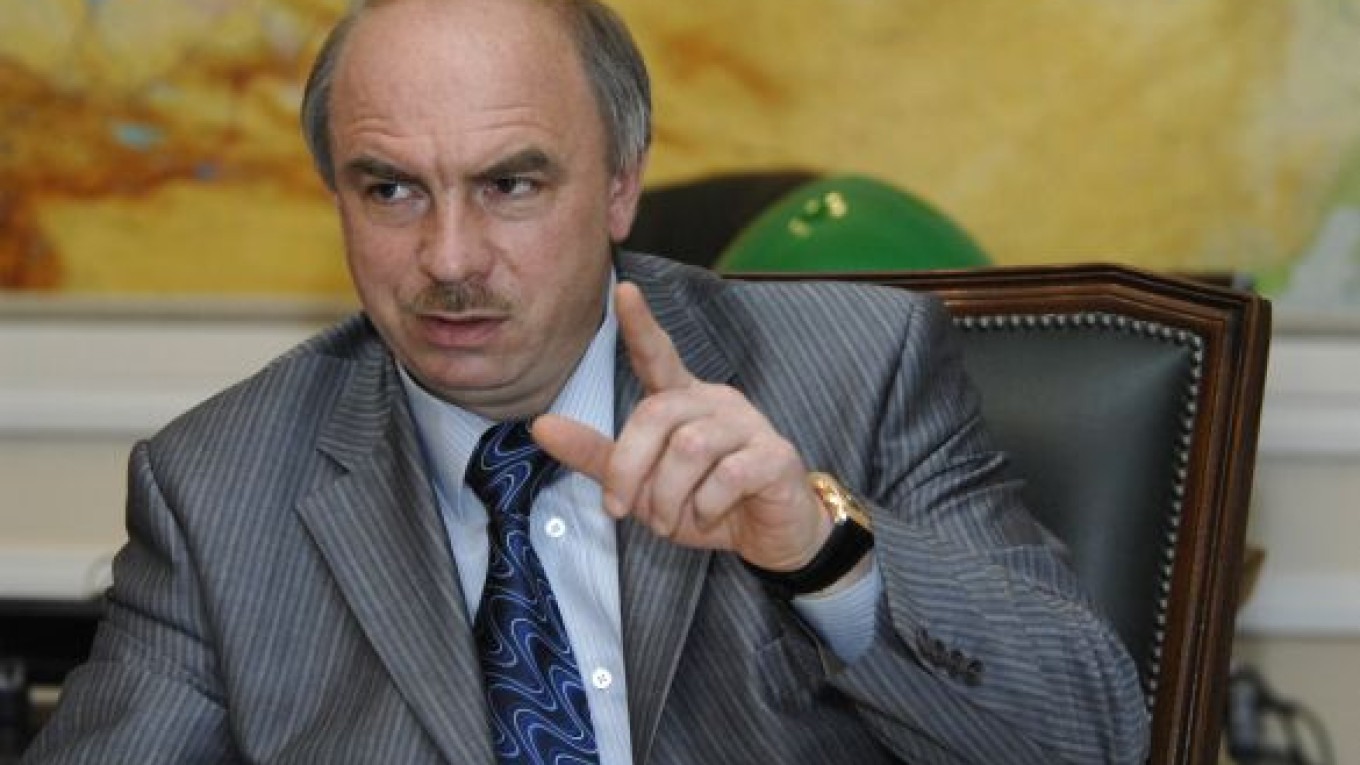Oleg Deripaska's construction company Transstroi fired its chief executive for embezzlement, the billionaire's investment vehicle said Monday, in a rare public dismissal of a major Russian firm's CEO.
Ivan Kuznetsov lost his job because of his “extremely unsatisfactory work” and his involvement in “illegal transfers of shareholder money,” Deripaska's Basic Element holding said in a statement.
Kuznetsov illegally transferred “hundreds of millions of rubles,” or millions of dollars worth of funds out of Transstroi, Basic Element said. Transstroi reported the findings to law enforcement agencies, the statement said, without naming specific agencies.
Kuznetsov could not be reached, and law enforcement agencies had not commented on the case by Monday evening.
Transstroi is a nationwide builder of roads and ports, and its current contracts include construction of a seaport in Sochi to help the city host the 2014 Olympics. The company has also won the rights to build a football stadium in St. Petersburg that may eventually host World Cup games in 2018 or 2022 if a Russian bid to host them is successful.
Transstroi's board expressed confidence that the company would complete its projects on time and with proper quality “regardless of any circumstances,” it said in the statement.
The public sacking was “very uncharacteristic” of big corporations, said Yelena Panfilova, Moscow chief of Germany-based international anti-corruption watchdog Transparency International. But it represents the trend for major companies to get rid of corrupt executives to avoid damage to their reputations — a practice that has tended to be quiet so far, she said.
“The fashion gradually catches on more and more,” she said.
Basic Element's deputy chief executive Andrei Yelinson said the publicity was to show that state contracts were a priority.
“We want the execution of these state contracts to be on target,” he said, Interfax reported.
A Basic Element spokeswoman referred all questions to a Transstroi spokesman, who was not answering his phone.
The government's Audit Chamber may at any time uncover and publicize wrongdoing at companies that work for the state, reducing the prospects of future contracts, Panfilova said.
Citing reports made by the company's internal auditing department, Yelinson said that under Kuznetsov, Transstroi signed fictitious contracts or agreed to pay more than the market price for the work it wanted done. As an example, he cited an unnecessary consulting contract worth at least 100 million rubles, or $3.6 million.
Transstroi will attempt to recover the funds it considers illegally spent, Yelinson said.
Basic Element is seeking charges under Article 160, Part 4, of the Criminal Code, which is for embezzlement of large sums or as part of a criminal group. The charge carries a maximum sentence of up to 10 years in prison.
Basic Element turned its sights on Transstroi after making a more transparent business out of Glavstroi, which is another of Basic Element's construction assets, he said.
Alexei Barantsev, who runs the entire Basic Element construction division, will manage Transstroi as its chief executive, the statement said. Kuznetsov had run the company since March 2009, before which he was chief of the company's engineering unit.
Companies began cleaning their ranks more rigorously about 18 months ago, Panfilova said, basing her conclusion on the watchdog's ties with the corporate world. She declined to name examples, citing confidentiality of the information.
A Message from The Moscow Times:
Dear readers,
We are facing unprecedented challenges. Russia's Prosecutor General's Office has designated The Moscow Times as an "undesirable" organization, criminalizing our work and putting our staff at risk of prosecution. This follows our earlier unjust labeling as a "foreign agent."
These actions are direct attempts to silence independent journalism in Russia. The authorities claim our work "discredits the decisions of the Russian leadership." We see things differently: we strive to provide accurate, unbiased reporting on Russia.
We, the journalists of The Moscow Times, refuse to be silenced. But to continue our work, we need your help.
Your support, no matter how small, makes a world of difference. If you can, please support us monthly starting from just $2. It's quick to set up, and every contribution makes a significant impact.
By supporting The Moscow Times, you're defending open, independent journalism in the face of repression. Thank you for standing with us.
Remind me later.


